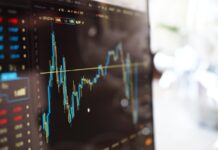Forex trading is considered an excellent investing frontier; it is a market where a relatively smaller investor with significantly lower trading capital can be fortunate to have high returns.
Forex is the most traded market by big investors; the exchange of billions of dollars habitually happens worldwide daily. If you may prefer to trade in forex, it is important that you know much about it from forex professionals. Here are five questions to ask a forex expert before investing.
1. How should I survey the market?
A good forex professional should explain the benefits and demerits of popular market analysis tools like technical, sentiment, and fundamental analysis. While many professional traders focus their investment choices on combining more than two analytical disciplines, such as fundamentals and technical, some traders have mastered only one strategy and trade profitably.
An Iraqi dinar guru believes combining fundamental analysis and technical analysis may be a wise decision if your trading style is for longer-term trading. Traders who combine basics in their trading can better predict large exchange rate movements and boost their success.
2. Should I trade exotic currencies?
There are eight major currencies in the foreign exchange market. It may be difficult to identify profitable market opportunities if your trading style needs a longer-term strategy for market analysis. Why not include exotic currencies in your analysis? Exotic currencies are not widely traded as major currencies. Their liquidity is, therefore, limited, and their volatility is high. Less-traded currencies can move several pips in a few hours.
You must know the economic and political risks associated with those currencies, which can change daily. Inquire with your Forex trading coach about whether exotic trading currencies fit into your trading strategy and how you can manage the risks.
3. How much should I risk when I trade?
The most important aspect of trading success is risk management. Nobody knows how the market will behave the next day, hour, or minute. When we place a trade, we do so because we believe our trade has a better chance of winning than losing, so we risk opening the position.
The only thing we have complete control over is the market risk we take. Successful traders understand this and only risk a small portion of their total trading account on any particular transaction. The basic rule is never to risk more than 2% of what is in your trading account on a single trade, and as your account grows, you should consider reducing your risk even further.
4. Is combining forex with other markets ideal?
There are multiple financial markets worldwide, as the forex free course explains. Currency, equities, bonds, commodities, and even derivative contracts can all be traded based on these asset classes.
While you tend to concentrate on forex, you should realize that all financial markets are interconnected. Rising equities, for example, can increase demand for the local currency to invest in stocks, resulting in currency appreciation. Falling equities can reduce investors’ risk appetite and boost the price of gold, traditionally regarded as a haven. Please inquire with your Forex professional about other markets, how they trade, and the advantage of the relationship between different markets.
5. At what time should I trade?
From Monday to Friday, the forex market is open 24 hours a day. Investors can trade at any time since this market is usually open for investment at any time. Sydney and Tokyo are awake while New York is sleeping. It is important to note that some periods offer better profit chances than others. This usually happens when scalpers and traders open many trades and may be affected by slippage and wider spreads. A good forex expert should assess how you trade before telling you when to trade.
The Forex market has unique features, which a trader must learn and practice as time goes by. You must trade with an edge, pay attention to pivot levels, use your trading capital well, and place stops at reasonable levels. These are not all the requirements for successful trading, but they can help you have a solid start.

















